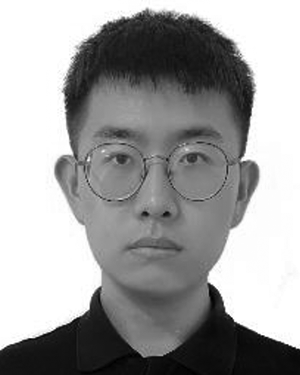Abstract:
Many practical systems are often involved in sequence-dependent failure behaviors. The efficiency of analyzing these dynamic systems is limited by addressing sequential f...Show MoreMetadata
Abstract:
Many practical systems are often involved in sequence-dependent failure behaviors. The efficiency of analyzing these dynamic systems is limited by addressing sequential failure events (SFEs). The survival signature method has the potential to address this issue. However, the survival signature cannot be applied directly due to the existence of SFEs. In this article, the adapted survival signature-based methods are developed for the rapid analysis of dynamic systems modeled by dynamic fault trees with priority-and gates. First, we deduce the probabilistic expressions of SFEs under the survival signature paradigm using conditional probability. Second, an analytical method for accurately computing the survival signatures of dynamic systems is proposed. Third, for large-scale and highly coupled dynamic systems, a semianalytical method is proposed to obtain the survival signature through simulating the Boolean states of SFEs under given components’ state. Several numerical and practical engineering cases are examined to highlight the superiority of the proposed methods compared with the sequential binary decision diagram method and coarse Monte Carlo simulation.
Published in: IEEE Transactions on Reliability ( Volume: 72, Issue: 3, September 2023)
Funding Agency:

Institute of Nuclear Energy Safety Technology, HFIPS, Chinese Academy of Sciences, Hefei, China
University of Science and Technology of China, Hefei, China
Shaoxuan Wang received the B.S. degree in nuclear engineering and technology from the Huazhong University of Science and Technology, Wuhan, China, in 2019. He is currently working toward the Ph.D. degree in nuclear science and engineering with the University of Science and Technology of China, Hefei, China.
His current research interests include system reliability analysis, probabilistic risk assessment, and dynamic fault ...Show More
Shaoxuan Wang received the B.S. degree in nuclear engineering and technology from the Huazhong University of Science and Technology, Wuhan, China, in 2019. He is currently working toward the Ph.D. degree in nuclear science and engineering with the University of Science and Technology of China, Hefei, China.
His current research interests include system reliability analysis, probabilistic risk assessment, and dynamic fault ...View more

Institute of Nuclear Energy Safety Technology, HFIPS, Chinese Academy of Sciences, Hefei, China
Yuantao Yao (Member, IEEE) received the Ph.D. degree in computer science and technology from the University of Science and Technology of China, Hefei, China, in 2021.
He is currently a Research Assistant with Nuclear Emergency and Public Safety Laboratory, Institute of Nuclear Energy Safety Technology, Hefei Institute of Physical Sciences, Chinese Academy of Sciences, Hefei, China. His current research interests include sy...Show More
Yuantao Yao (Member, IEEE) received the Ph.D. degree in computer science and technology from the University of Science and Technology of China, Hefei, China, in 2021.
He is currently a Research Assistant with Nuclear Emergency and Public Safety Laboratory, Institute of Nuclear Energy Safety Technology, Hefei Institute of Physical Sciences, Chinese Academy of Sciences, Hefei, China. His current research interests include sy...View more

Institute of Nuclear Energy Safety Technology, HFIPS, Chinese Academy of Sciences, Hefei, China
University of Science and Technology of China, Hefei, China
Zhixian Lin received the B.S. degree in safety engineering from the Anhui University of Science and Technology, Huainan, China, in 2019. She is currently working toward the Ph.D. degree in nuclear science and engineering with the University of Science and Technology of China, Hefei, China.
Her current research interests include system reliability analysis, probabilistic risk assessment, and dynamic fault tree.
Zhixian Lin received the B.S. degree in safety engineering from the Anhui University of Science and Technology, Huainan, China, in 2019. She is currently working toward the Ph.D. degree in nuclear science and engineering with the University of Science and Technology of China, Hefei, China.
Her current research interests include system reliability analysis, probabilistic risk assessment, and dynamic fault tree.View more

Institute of Nuclear Energy Safety Technology, HFIPS, Chinese Academy of Sciences, Hefei, China
Daochuan Ge received the Ph.D. degree in nuclear science and engineering from Shanghai Jiao Tong University, Shanghai, China, in 2016.
He is currently an Associate Professor with the Institute of Nuclear Energy Safety Technology, HFIPS, Chinese Academy of Sciences, Hefei, China. His current research interests include system reliability analysis, probabilistic risk assessment, and prognostics and health management.
Daochuan Ge received the Ph.D. degree in nuclear science and engineering from Shanghai Jiao Tong University, Shanghai, China, in 2016.
He is currently an Associate Professor with the Institute of Nuclear Energy Safety Technology, HFIPS, Chinese Academy of Sciences, Hefei, China. His current research interests include system reliability analysis, probabilistic risk assessment, and prognostics and health management.View more

Institute of Nuclear Energy Safety Technology, HFIPS, Chinese Academy of Sciences, Hefei, China
Jie Wu received the B.S. degree in automation of electric systems from Zhejiang University, Hangzhou, China, in 1983, and the M.S. degree in reactor safety from Technische Universität München, Munich, Germany, in 1990.
He was a Chief Engineer with Westinghouse Electric Corporation and is currently a Distinguished Professor with the Institute of Nuclear Energy Safety Technology, HFIPS, Chinese Academy of Sciences, Hefei, Ch...Show More
Jie Wu received the B.S. degree in automation of electric systems from Zhejiang University, Hangzhou, China, in 1983, and the M.S. degree in reactor safety from Technische Universität München, Munich, Germany, in 1990.
He was a Chief Engineer with Westinghouse Electric Corporation and is currently a Distinguished Professor with the Institute of Nuclear Energy Safety Technology, HFIPS, Chinese Academy of Sciences, Hefei, Ch...View more

Institute of Nuclear Energy Safety Technology, HFIPS, Chinese Academy of Sciences, Hefei, China
Jie Yu received the M.S. degree in mechanical design and theory from the Harbin Institute of Technology, Harbin, China, in 1989, and the Ph.D. degree in nuclear science and engineering from the Chinese Academy of Sciences, Hefei, China, in 1999.
He is currently a Professor and a Deputy Director of the Institute of Nuclear Energy Safety Technology, HFIPS, Chinese Academy of Sciences, Hefei, China. His current research inter...Show More
Jie Yu received the M.S. degree in mechanical design and theory from the Harbin Institute of Technology, Harbin, China, in 1989, and the Ph.D. degree in nuclear science and engineering from the Chinese Academy of Sciences, Hefei, China, in 1999.
He is currently a Professor and a Deputy Director of the Institute of Nuclear Energy Safety Technology, HFIPS, Chinese Academy of Sciences, Hefei, China. His current research inter...View more

Institute of Nuclear Energy Safety Technology, HFIPS, Chinese Academy of Sciences, Hefei, China
University of Science and Technology of China, Hefei, China
Shaoxuan Wang received the B.S. degree in nuclear engineering and technology from the Huazhong University of Science and Technology, Wuhan, China, in 2019. He is currently working toward the Ph.D. degree in nuclear science and engineering with the University of Science and Technology of China, Hefei, China.
His current research interests include system reliability analysis, probabilistic risk assessment, and dynamic fault tree.
Shaoxuan Wang received the B.S. degree in nuclear engineering and technology from the Huazhong University of Science and Technology, Wuhan, China, in 2019. He is currently working toward the Ph.D. degree in nuclear science and engineering with the University of Science and Technology of China, Hefei, China.
His current research interests include system reliability analysis, probabilistic risk assessment, and dynamic fault tree.View more

Institute of Nuclear Energy Safety Technology, HFIPS, Chinese Academy of Sciences, Hefei, China
Yuantao Yao (Member, IEEE) received the Ph.D. degree in computer science and technology from the University of Science and Technology of China, Hefei, China, in 2021.
He is currently a Research Assistant with Nuclear Emergency and Public Safety Laboratory, Institute of Nuclear Energy Safety Technology, Hefei Institute of Physical Sciences, Chinese Academy of Sciences, Hefei, China. His current research interests include system reliability analysis and prognostics and health management.
Yuantao Yao (Member, IEEE) received the Ph.D. degree in computer science and technology from the University of Science and Technology of China, Hefei, China, in 2021.
He is currently a Research Assistant with Nuclear Emergency and Public Safety Laboratory, Institute of Nuclear Energy Safety Technology, Hefei Institute of Physical Sciences, Chinese Academy of Sciences, Hefei, China. His current research interests include system reliability analysis and prognostics and health management.View more

Institute of Nuclear Energy Safety Technology, HFIPS, Chinese Academy of Sciences, Hefei, China
University of Science and Technology of China, Hefei, China
Zhixian Lin received the B.S. degree in safety engineering from the Anhui University of Science and Technology, Huainan, China, in 2019. She is currently working toward the Ph.D. degree in nuclear science and engineering with the University of Science and Technology of China, Hefei, China.
Her current research interests include system reliability analysis, probabilistic risk assessment, and dynamic fault tree.
Zhixian Lin received the B.S. degree in safety engineering from the Anhui University of Science and Technology, Huainan, China, in 2019. She is currently working toward the Ph.D. degree in nuclear science and engineering with the University of Science and Technology of China, Hefei, China.
Her current research interests include system reliability analysis, probabilistic risk assessment, and dynamic fault tree.View more

Institute of Nuclear Energy Safety Technology, HFIPS, Chinese Academy of Sciences, Hefei, China
Daochuan Ge received the Ph.D. degree in nuclear science and engineering from Shanghai Jiao Tong University, Shanghai, China, in 2016.
He is currently an Associate Professor with the Institute of Nuclear Energy Safety Technology, HFIPS, Chinese Academy of Sciences, Hefei, China. His current research interests include system reliability analysis, probabilistic risk assessment, and prognostics and health management.
Daochuan Ge received the Ph.D. degree in nuclear science and engineering from Shanghai Jiao Tong University, Shanghai, China, in 2016.
He is currently an Associate Professor with the Institute of Nuclear Energy Safety Technology, HFIPS, Chinese Academy of Sciences, Hefei, China. His current research interests include system reliability analysis, probabilistic risk assessment, and prognostics and health management.View more

Institute of Nuclear Energy Safety Technology, HFIPS, Chinese Academy of Sciences, Hefei, China
Jie Wu received the B.S. degree in automation of electric systems from Zhejiang University, Hangzhou, China, in 1983, and the M.S. degree in reactor safety from Technische Universität München, Munich, Germany, in 1990.
He was a Chief Engineer with Westinghouse Electric Corporation and is currently a Distinguished Professor with the Institute of Nuclear Energy Safety Technology, HFIPS, Chinese Academy of Sciences, Hefei, China. His current research interests include power system status risk management, probabilistic risk assessment, and nuclear energy safety.
Jie Wu received the B.S. degree in automation of electric systems from Zhejiang University, Hangzhou, China, in 1983, and the M.S. degree in reactor safety from Technische Universität München, Munich, Germany, in 1990.
He was a Chief Engineer with Westinghouse Electric Corporation and is currently a Distinguished Professor with the Institute of Nuclear Energy Safety Technology, HFIPS, Chinese Academy of Sciences, Hefei, China. His current research interests include power system status risk management, probabilistic risk assessment, and nuclear energy safety.View more

Institute of Nuclear Energy Safety Technology, HFIPS, Chinese Academy of Sciences, Hefei, China
Jie Yu received the M.S. degree in mechanical design and theory from the Harbin Institute of Technology, Harbin, China, in 1989, and the Ph.D. degree in nuclear science and engineering from the Chinese Academy of Sciences, Hefei, China, in 1999.
He is currently a Professor and a Deputy Director of the Institute of Nuclear Energy Safety Technology, HFIPS, Chinese Academy of Sciences, Hefei, China. His current research interests include nuclear energy science and engineering, mechatronics, and electromagnet technology.
Jie Yu received the M.S. degree in mechanical design and theory from the Harbin Institute of Technology, Harbin, China, in 1989, and the Ph.D. degree in nuclear science and engineering from the Chinese Academy of Sciences, Hefei, China, in 1999.
He is currently a Professor and a Deputy Director of the Institute of Nuclear Energy Safety Technology, HFIPS, Chinese Academy of Sciences, Hefei, China. His current research interests include nuclear energy science and engineering, mechatronics, and electromagnet technology.View more


